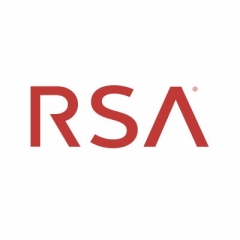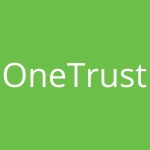What is our primary use case?
There are six to seven use cases currently. Most of the time, clients request a customized application. Right now, we're using RSA Archer for risk and issue management— like building a risk registry. We'll respond to risks using findings in the risk registry. So we'll set policies for risk discrimination and acceptance based on inherent and residual risk. We have all kinds of environments, covering DEV, SIT, and UIT. Currently, we have 6.9 Service Pack 2.
What is most valuable?
With RSA Archer, an admin can set permissions for a normal user to go directly to the tool they need to input some data. Admins can then go through that and approve some requests. Also, they can log in based on these kinds of permissions, including ticketing, service patches, or upgrades. The manager gets a notification, and they can log into the mobile application using this tool.
What needs improvement?
It would be nice if RSA Archer featured more customization. When customers are updating, they should be notified whether certain updates are optional. The install screen should not proceed to the next page unless we make some selections about which updates we want to install. That feature should be implemented in Azure so that users are aware.
There is also an issue with managing records. If we add or remove records, something has to be updated. Something has to be developed in this subform so that if a developer unexpectedly removes the total recorder linked to the parent record, it doesn't interrupt the connection. They have to come up with a solution for that.
Previously, we used RSA Archer to review data events. For example, we have a feature called Subscription Notification that was called Generate Notification. The letterhead was changed after migration, so we needed to update the letterhead manually. In Service Pack 2 6.9, links were embedded. So if we edited STTP, we had to remove the double slashes at the beginning of the address and update them to use only one slash. However, it is not recommended practice, so currently they're still updating that. We have notified the RSA team, and they are working on that.
For how long have I used the solution?
I've been working with RSA Archer for seven years. I started my career as an administrator, and after that, I switched to development. Currently, I'm leading the team in an architectural role, like gathering requirements, deployments, and support.
What do I think about the stability of the solution?
In terms of performance, I would rate RSA Archer seven out of 10.
What do I think about the scalability of the solution?
After deployment, some customers complain that the database must be constantly updated every time they add users, and the update process takes them a long time. For example, one of my clients has 60,000 to 70,000 users in their environment. It takes them three to four days to rebuild the search index on the database side.
How are customer service and support?
We're in touch with RSA Archer's support on a daily basis. We have set up a scrum call every day to check if the clients have any issues identified post-deployment. In addition, we stay in touch with the tech team and provide support after deployment to address minor issues like, for example, if a customer needs to change their configuration. So we are implementing and releasing in two to three days if any minor changes are required.
Which solution did I use previously and why did I switch?
I previously worked on ITGC Controls in the IT sector conducting general control audits. I have performed other roles. We used to collect all the systems-related information showing that the server is updated correctly. We used to check database server-related information, so we'd verify that the daily backup is done. All the IT environments should have maintenance on policies ISO 7001, and I performed the general control audits.
I was using a related tool, but at the time, I was interested more in development, so that's why I have switched. Initially, it was a minor project that required significantly less personnel. RSA Archer is growing mature, so I just switched.
How was the initial setup?
When you're first installing RSA Archer, the mobile feature is not available, but users can still manually input the details in the initial phase. And initially, it's like a normal input process. Then, after that, they have to come back and monitor using the PC or the laptop.
The personnel needed for deployment depends on the solution. If there is one developer, they don't have any direct authority to deploy it. So we have some third-party monitoring at the time of deployment because if they touch any course other than this, the dedicated solution has to monitor it. Generally, one developer is enough for one solution. And after deployment, they have to recheck using that third party because most of them are in the banking sector, so everything should be monitored.
It takes about an hour to install. But, of course, if any jobs are running, it might take longer. So we have to give the system time to install all the code correctly. After installation, we also need to check for upgrades.
What was our ROI?
I can say RSA Archer is worth the cost.
What's my experience with pricing, setup cost, and licensing?
The price of RSA Archer is good. The price isn't too high considering it is a leading tool in the market. However, some Level Three companies cannot afford this license because they're charging too much. For example, the price might be reasonable for Level Five companies doing a four-month project, but they have to lower prices to make the product more competitive in the market for companies below Level Three.
What other advice do I have?
I rate RSA Archer nine out of 10. It's an increasingly mature and very secure tool in the market. Every environment should have this kind of tool. It's useful for tracking any security threat.
Disclosure: My company does not have a business relationship with this vendor other than being a customer.


















